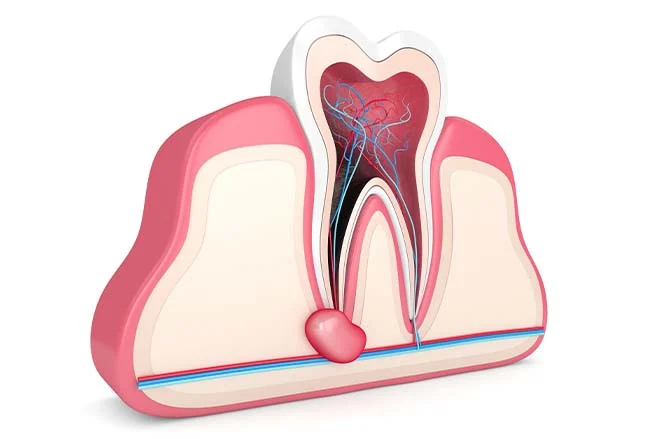Cystic enucleation is a surgical procedure to remove a cyst from the jawbone. A dental cyst is a sac-like structure filled with fluid that can develop around the roots of teeth. While many cysts may not cause symptoms, some can lead to pain, infection, or damage to surrounding teeth and bone.
